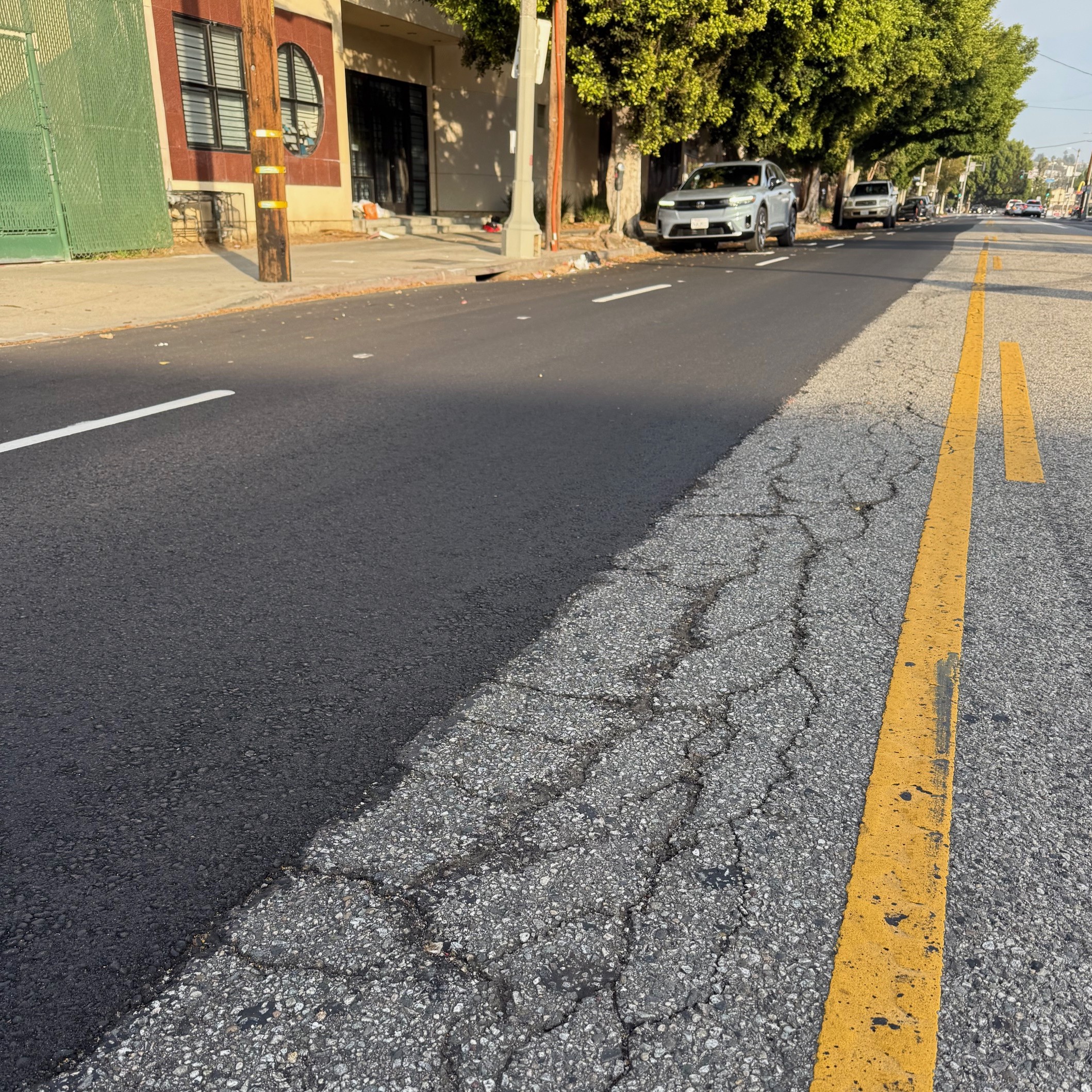 Signs, signs, everywhere signs. Photo: Drew Reed/LA Loyalist
Signs, signs, everywhere signs. Photo: Drew Reed/LA LoyalistLong Beach's ambitious campaign to become the Most Bicycle Friendly City in America is well underway. The Second St. sharrows debuted to much fanfare last summer, followed by bike boxes nearby on Second st. and Marina ave. Recently, the city has selected contractors for its Vista Bike Boulevard and Broadway/Third St. bike lane projects, with completion to come in four to five months. In the meantime, a new numbered bikeway project has been quietly debuting across the city.
What is the bikeway project? Initially conceived in 2001 as part of Long Beach's Bike Master Plan, they were originally planned as numbered routes to be placed on Long Beach's "primary north-south and east-west corridors" in order to help direct cyclists, potentially also including "signs that indicate total number of miles to the end destination." These signs have finally begun to appear under the more recent Bike Long Beach initiative, though the Bike Long Beach site doesn't offer much information about them. Nevertheless, Long Beach citizens welcome the addition of these signs; one cyclist is in the process of cataloging them all at the Everything Long Beach blog.
As with many of Bike Long Beach's other projects, the bikeway network's signs are simple, low in cost, and quick to implement. Moreover, they effectively improve the overall bicycling experience, helping cyclists to navigate while at the same time making them feel comfortable on the road. But there is more the city can do to in the long term to increase the effectiveness of the bikeway network even further.
Better Sign Visibility
The beginnings and ends of bikeways are clearly signed, however in some cases there are large distances between signs along the route, making it difficult for cyclists entering the route to recognize they are actually finding the route. This can be avoided by installing larger signs, more frequent signs, and placing signs closer to eye level. In some instances, it may be possible to complement signs on street poles with on-street lane markings similar to sharrows; this should be easy to implement as on-street markings have been used by the city often in the past.
Better Junction Markings
Riders following any given bikeway receive little notice from signs as to when they are crossing another bikeway. To improve the navigational usefulness of the bikeway network, signs indicating an upcoming junction with another bikeway should be posted roughly half a block in advance. These signs can include the destinations at the ends of the intersecting route as well.
Better Network Awareness
While it will ultimately always be up to the rider to figure out how to navigate to a destination, bikeway signs should make a reasonable effort to let riders know where the route leads. For instance, bikeway 16 east could have a small green sign underneath the main route sign reading "To CSULB". Distances to destinations can also be included where practical.
In short, the bikeway network needs to appear more substantial. Bicycle improvements are great ways to harness mostly existing road infrastructure in a way that is environmentally and neighborhood friendly, and Long Beach is wise to implement a program that extends beyond Downtown and Belmont Shore to include the whole city. Moving forward, the city should do all it can to make its bikeway network straightforward, visible, and easy to understand. This will make navigation easier and create a more bike-friendly environment on the streets, benefitting the city and region. As it develops, the bikeway network of Long Beach may even hold some lessons for another bikeway network in Southern California.





